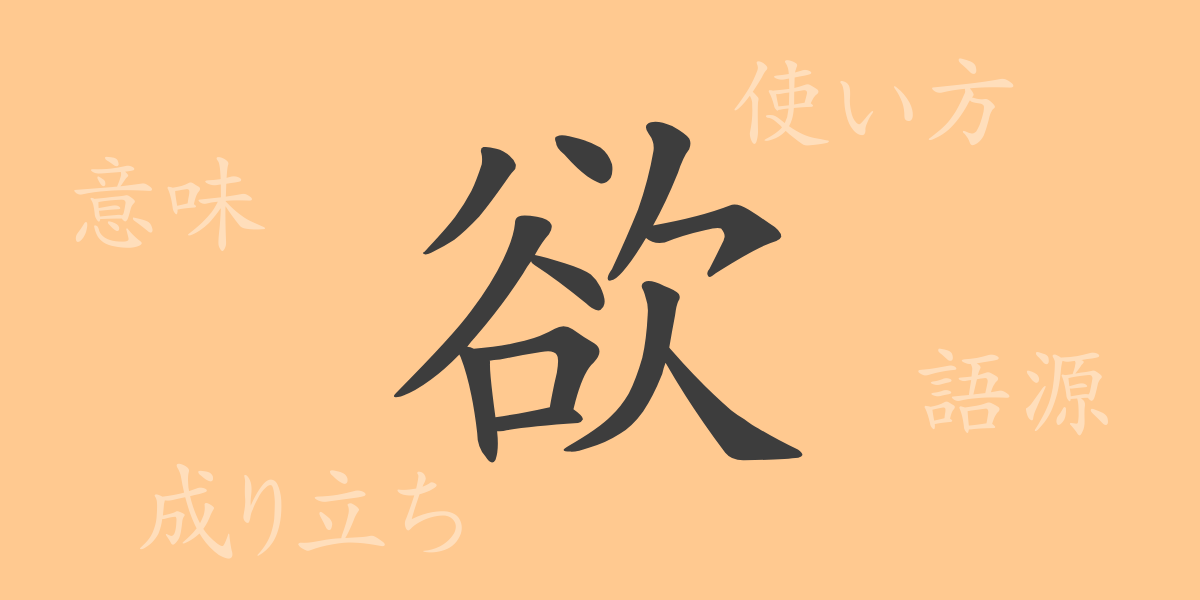One of the countless emotions that arise in our daily lives is “欲 (yoku)” or desire. This small kanji character has a significant impact on human psychology and behavior, sometimes even changing the course of history. In this article, we delve into the secrets of “欲 (yoku),” a common kanji in Japanese, exploring its origins, meanings, usage, and even the idioms and proverbs that incorporate it.
Origins of 欲 (yoku)
The character “欲 (yoku)” can trace its roots back to ancient Chinese oracle bone script. Originally derived from a pictogram representing water accumulating in a valley, it evolved to signify desires and wishes accumulating in the heart. Over time, it was adopted into the Japanese language to describe the strong yearning or craving for something.
Meanings and Usage of 欲 (yoku)
The kanji “欲 (yoku)” refers to a strong desire or the act of intensely wanting something. In Japanese, it is used in words like 欲望 (yokubou) meaning “desire,” 欲求 (yokkyuu) meaning “craving,” and 欲しい (hoshii) meaning “to want.” It expresses the deep-seated desires within a person’s heart. On the negative side, excessive desire is said to drive people mad, highlighting the importance of having a measured approach to one’s desires.
Reading, Stroke Count, and Radical of 欲 (yoku)
The kanji “欲 (yoku)” showcases the depth of the Japanese language through its structure and readings.
- Readings: The on’yomi (音読み) is “ヨク (yoku),” and the kun’yomi (訓読み) are “ほっする (hossuru)” and “ほしい (hoshii).”
- Stroke Count: It consists of 11 strokes.
- Radical: The radical is 欠 (kakeru).
Idioms, Proverbs, and Phrases Using 欲 (yoku)
There are many idioms, proverbs, and phrases that include “欲 (yoku),” each reflecting human psychology and behavior.
- 欲張り (よくばり, yokubari): Refers to being overly greedy, describing a person with an avaricious nature.
- 欲望 (よくぼう, yokubou): A strong desire or craving, whether material or spiritual.
- 欲求不満 (よっきゅうふまん, yokkyuu fuman): Frustration or dissatisfaction arising from unfulfilled desires.
- 欲目にかかる (よくめにかかる, yokume ni kakaru): The psychological state where things one desires appear better than they are.
- 金の切れ目が縁の切れ目 (かねのきれめがえんのきれめ, kane no kireme ga en no kireme): A proverb indicating that financial desires play a crucial role in maintaining relationships.
Conclusion on 欲 (yoku)
The kanji “欲 (yoku)” holds deep meaning rooted in our daily lives and manifests in various forms in our language. It transcends mere emotions or desires, influencing culture, philosophy, and even ethics. Properly controlled desire can be a driving force for a fulfilling life, but unchecked desire can lead to ruin. Striking a balance is essential for managing this powerful force effectively.

























